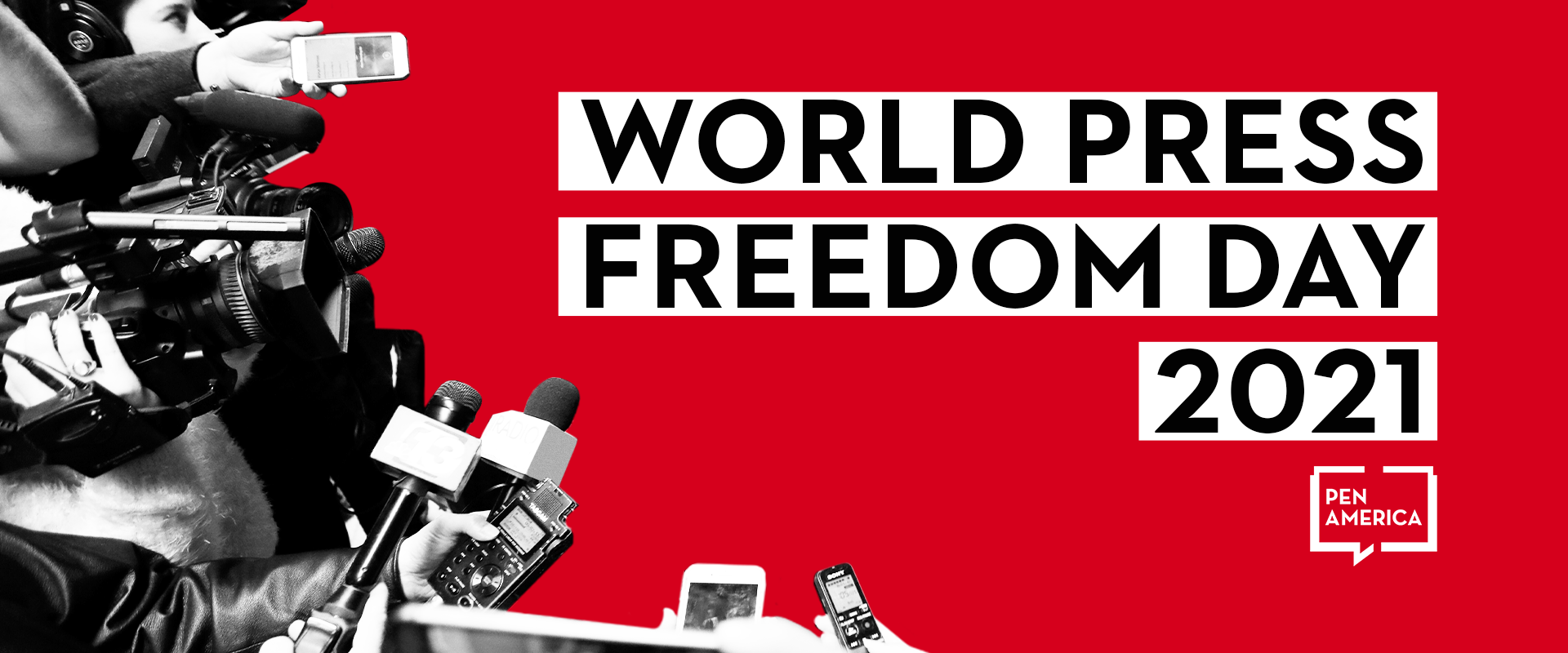
Photo by AP/Charlie Neibergall
Since 1993, World Press Freedom Day has served as a celebratory moment to honor the work of journalists and news organizations who use their platforms to hold the powerful accountable, provide fact-based news stories, and assert freedom of expression as a communal good.
Here in the United States, we are facing a moment when these vital local journalists and news sources are under threat. Wrought by a lack of financial resources and ruinous corporate media consolidation, local news coverage is experiencing an existential crisis.
This World Press Freedom Day, PEN America is highlighting the writing of a group of community-based journalists, editors, and publishers that demonstrate the necessity of local new stories in fostering informed civil discourse.
Events
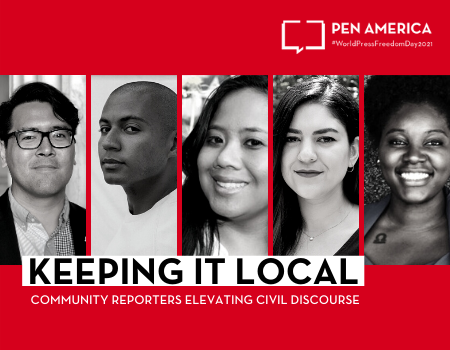
Monday, May 3, 2021 | 8pm ET
Join panelists Cierra Hinton (Scalawag Magazine), Sarah Rahal (Detroit News), Willoughby Mariano (The Atlanta Journal-Constitution), Trelaine Ito (Office of U.S. Senator Brian Schatz), and moderator Zach Stafford (MSNBC) as they participate in a moderated discussion where they will discuss their work, the importance of regional journalism, and how to support local news sources.

Wednesday, May 5, 2021 | 6pm ET
Join PEN America and Teens for Press Freedom for this online forum featuring a brief presentation, discussion, and expert-facilitated Q&A session with Harvard Law Professor and constitutional scholar Laurence H. Tribe to discuss the challenges and threats to international press freedom today, and what young people can do to help address them. High school and college alumni of PEN America’s youth programs, members of the Teens for Press Freedom, and other students are welcome to join.
Save Local News! Support the Local News Commission.
PEN America and several partner organizations are mobilizing our Members and Americans across the country to use their voice to save local news. Join us by calling on your U.S. senators and representatives to support the Future of Local News Commission Act, which would establish a federal advisory commission to study the decline of local news and propose solutions for the industry’s revitalization.
Our Partner Organizations Advocating for the Local News Commission
National Hispanic Media Coalition • Free Press • Society of Professional Journalists • Society of Professional Journalists Los Angeles • LION Publishers • Colorado Media Project • Native American Journalists Association • Common Cause • Alliance for Community Media • Radio Television Digital News Association
Keeping it Local: A Collection of Vital Regional News Stories
As a companion to our virtual World Press Freedom Day discussion, PEN America is excited to share Keeping it Local, a collection of recent news stories that demonstrate the importance of local journalism in fostering both informed communities and civil discourse. We’ve organized a collection of local news stories in distinct categories, ranging from issues related to public health to the impact of the recent social justice movements.
Regional Politics

By Tony Bartelme, Glenn Smith, Joseph Cranney, and Avery G. Wilks, The Post and Courier
“Corruption festers when people aren’t looking, when the spotlight doesn’t shine. Without fair scrutiny, public officials with weak ethical backbones bend the rules. They help themselves to public money. They help their cronies instead of people they represent. Like a virus, corruption mushrooms, and so do the costs to you and other members of the public.”
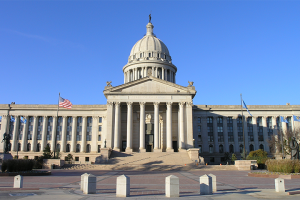
Health Coalition Objects to Managed Care
By Edit Team, Kingfisher Times & Free Press
“As the Oklahoma House of Representatives considers Senate Bill 131 this week, a coalition of health care organizations called on the Oklahoma Legislature to vote to stop what they are calling a “flawed” plan to privatize health care for 1 million Medicaid recipients.”
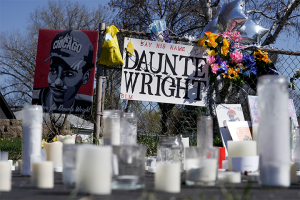
How the Killing of Daunte Wright is Affecting Police Reform Efforts at the Minnesota Legislature
By Walter Orenstein, MinnPost
“Ever since, Democrats who control the Minnesota House have been pushing additional plans to further reshape policing and criminal justice in the state, even as Republicans who control the state Senate have opposed many of those ideas.”
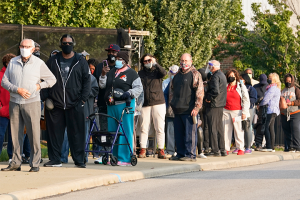
How Photo ID Laws and Provisional Ballots Target the Most Marginalized Southerners
By Iliana Hagenah, Scalawag Magazine
“Ryan Thoreson, a researcher at the LGBT program of the Human Rights Watch, said that strict photo ID laws and other structural barriers, like poverty, homelessness, and limited access to healthcare, have made voting disproportionately more difficult for the trans population.”
Social Movements and Social Discord
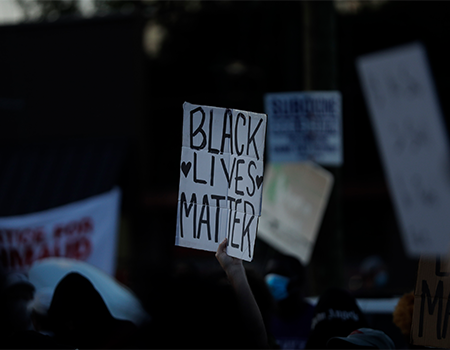
By Jeremy Redmon, Willoughby Mariano, and Ernie Suggs, The Atlanta Journal-Constitution
“Few could have predicted how far and wide the movement would spread, or how many lives it would touch. The tangible impacts across the region and around the state have come at such a speed and from so many directions as to leave veteran activists dizzy.”

How a Dangerous North Texas Militiaman Became a Symbol for a Growing Extremist Movement
By Kevin Krause, The Dallas Morning News
“Kevin Massey first gained notoriety by detaining immigrants on the Texas-Mexico border. When he got out of prison, he absconded and became a fugitive, threatening a war with the government. That message resonated with other extremists, who continue to see him as a martyr in the fight against tyranny.”
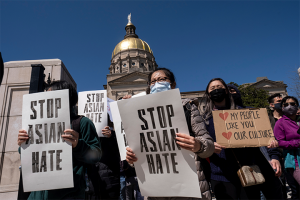
Asians have Long, Complex History Navigating Georgia’s Racial Divides
By Tamar Hellerman, The Atlanta Journal-Constitution
“To some, the violence on March 16 was a reminder of their status as perpetual outsiders in a part of the country where race is so often discussed in terms of Black and white.”
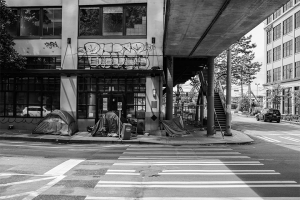
Project Homeless
Produced by editor Molly Harbarger, reporters Sydney Brownstone and Scott Greenstone, and engagement editor Anna Patrick, The Seattle Times
Project Homeless is a Seattle Times initiative that explores and explains the region’s complex, troubling problem of homelessness. With strong watchdog reporting and vivid storytelling, Project Homeless seeks to spotlight what is working, and what is not working, in responding to homelessness.

The Southern Tenant Union Playbook
By Sam Russek, Scalawag Magazine
“‘Our strategies have to be rooted in the South,’ said Frank Southall of the New Orleans Renters Rights Assembly. ‘There’s no route that involves copying what’s done in New York.’”

Brooklyn Group Battles for Bushwick Building — and the Future of Affordable Housing
By Gabriel Sandoval and Hiram Alejandro Durán, THE CITY
“‘Thousands of New Yorkers depend on the LIHTC program to provide them with safe, stable and affordable housing,’ [State Attorney General Letitia James] said in a statement Thursday. ‘For private investors to try and skew the terms of this affordable housing program for their own financial gain is as harmful as it is unethical.’”
Public Health

By Sarah Rahal and James David Dickerson, The Detroit News
“The gap between Detroit and its neighboring communities is caused by a combination of vaccine hesitancy, societal barriers and not enough of the vaccines being available in neighborhoods, said Dr. Debra Furr-Holden, associate dean for public health integration at Michigan State University and director of the Flint Center for Health Equity Solutions.”
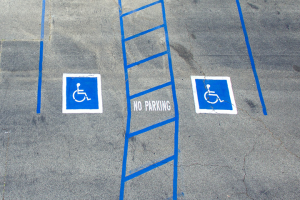
Resources for Immigrants with Disabilities in New York
By Rommel Ojeda, Documented
“As of December of 2020, 61 million adults in the United States have some type of disability according to the Centers of Disease Control and Prevention (CDC). That translates to 1 in 4 Americans. In New York that figure is 1 in 5, according to a Department of Health Survey.”
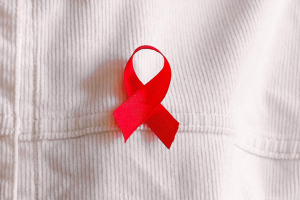
HIV Criminalization Laws and Race Combine To Make The Perfect Storm in Georgia
By Darian Aaron, The Reckoning
“In Georgia, there are currently seven HIV-specific criminal laws in effect. And according to a report by the Williams Institute UCLA School of Law, 543 people came in contact with the Georgia criminal system under an HIV-specific law between 1988-2017, with 74 convictions, all of which required no proof of conduct likely to transmit HIV, with Black Georgians disproportionately on the receiving end of these laws.”
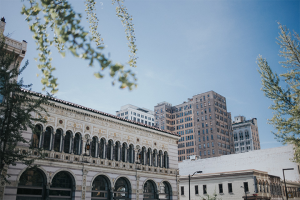
Birmingham has a Homicide Problem. Here’s What the Mayor Says Needs to be Done
By Ramsey Archibald, AL.com
“AL.com analyzed every Birmingham homicide from 2017 to 2020. Each case was different, with its own set of causes and complications. But many of the victims had a lot in common – such as where and how they died.”
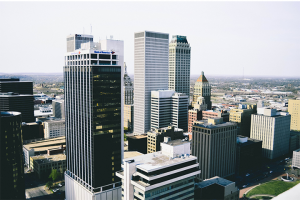
COVID May have Sped up Efforts to Deal with Homelessness in Tulsa
By Michael Overall, Tulsa World
“Implementing the strategic plan last year, local agencies increased outreach efforts with teams searching the streets seven days a week to offer services to people. Officials opened a landlord-tenant resource center to offer information about the eviction process and alternatives to it. And a 68-room “quarantine hotel” provided a short-term place to stay while officials found permanent housing for more than 930 people.”

Hospitality On Hold: How One Timeless Uptown Diner Was Interrupted By The Pandemic
By Woojae Julia Song, Borderless Magazine
“With insufficient federal financial relief, restaurants like Uptown’s Golden House have had to lay off staff, adapt to constantly changing policies, risk their health daily and make painful decisions in an effort to stay open.”
Social Media Toolkit
Thank you for your interest in helping us spread the word about World Press Freedom Day 2021. Please reference our social media toolkit to access links, visual assets, and sample copy for you to use in original posts across Facebook, Twitter, and Instagram.
